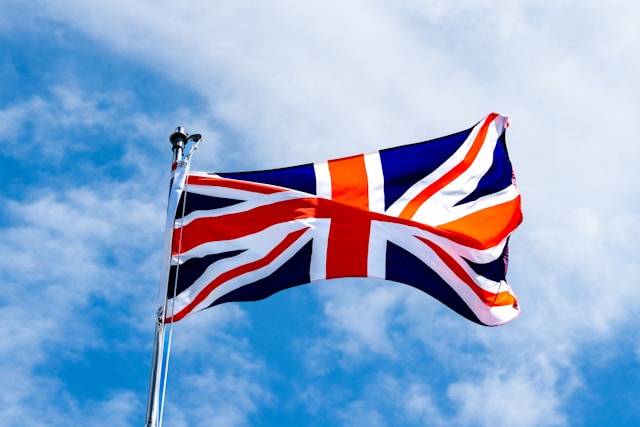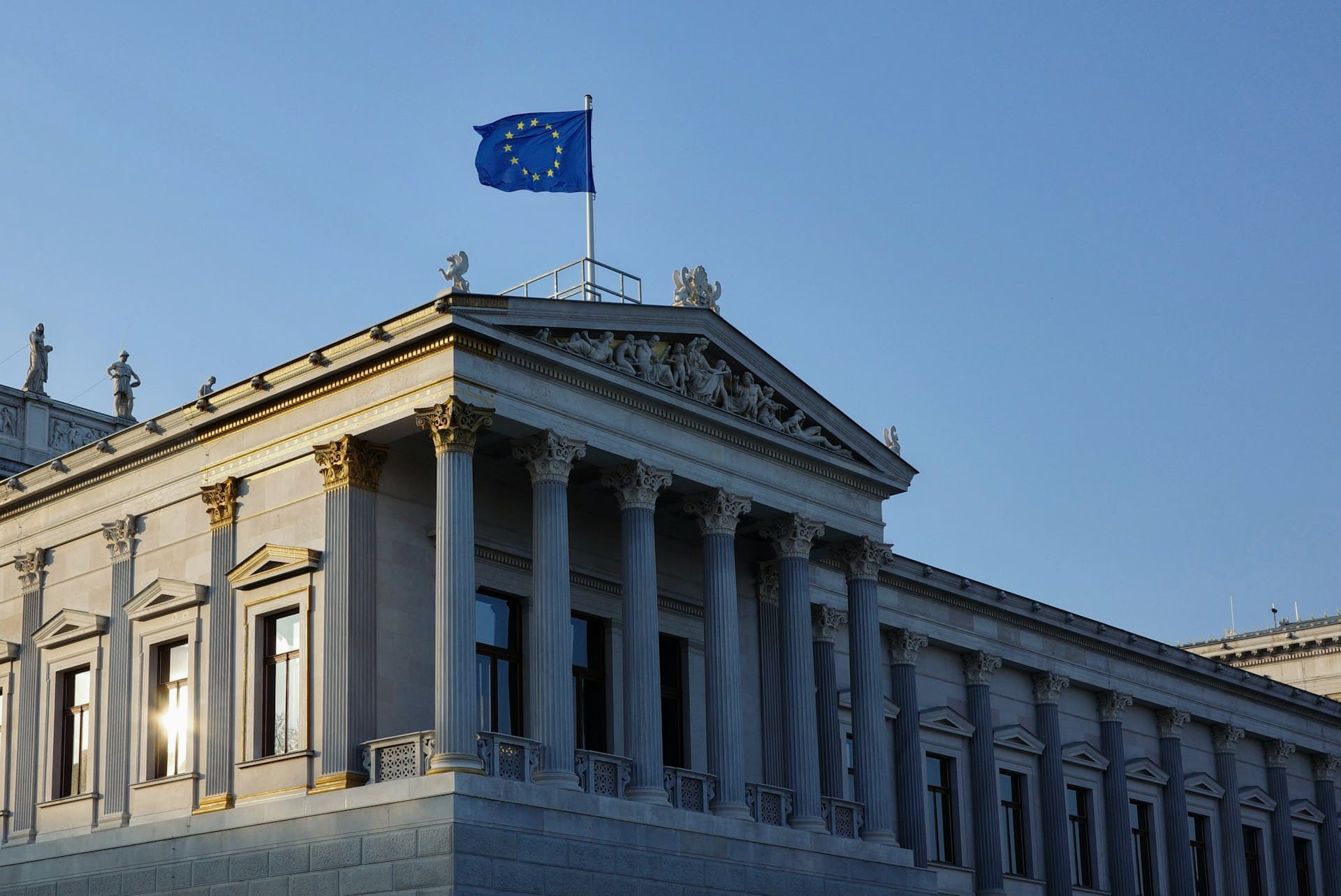
1725
TotalViews
The European hospitality sector enters an era of accountability, compliance and transparency around sustainability as legislators take action to enforce, approve and apply regulations to battle greenwashing and protect consumers and the environment.
It is a test of leadership, commitment and values … to confront the realities of the climate crisis head-on and take the opportunity to reinvent the luxury hospitality industry, to take charge with purpose and challenge outdated systems, to foster a culture of sustainability and integrate them into strategic planning, to inspire others through effective communication and focused action, to ingrain compliance in the company’s values and operations, to gain a competitive advantage and to increase asset value.
Q4 2025 UPDATE – EUROPEAN UNION SUSTAINABILITY RELATED LAWS

1. Empowering Consumers for the Green Transition Directive (ECGTD), will become law by March 27, 2026, and applied in all EU Member States from September 27, 2026.
It aims to give consumers the tools and information necessary to make informed sustainable purchasing decisions and prevent misleading claims and practices such as greenwashing and early obsolescence, plus enforce penalties and fines.
ECGTD forbid vague environmental claims and the display of unreliable voluntary sustainability logos, which means that companies will no longer be able to declare that they are ‘green’ or ‘sustainable’ or ‘environmentally friendly’ if they cannot demonstrate that they are. In addition, unfair commercial practices linked to early obsolescence will be prohibited, such as false claims about the sustainability of an asset. Penalties can include fines, and in some cases, criminal penalties, with the specific amounts varying by member state.
Sustainability has three pillars – environmental, social and financial. Any sustainability related claims should be verified by a third party expert (an auditor with an accredited Conformity Assessment Body) and should be independent and free from any conflicts of interest with the company being audited and sustainability certification scheme being audited.
Are companies outside the EU affected by ECGTD?

– Companies and individuals in the UK and Switzerland that make voluntary environmental claims to EU consumers or supply products to the EU with such claims are affected by the ECGTD (to be enforced in March 2026).
– Companies based in the EU will be affected by ECGTD and “liable for a fine” if they promote any companies based outside the EU that are greenwashing. Examples of companies that promote hotels include tour operators, travel agencies (ie. Booking.com, Expedia, or Airbnb), airlines, marketing alliance organizations, PR agencies, publications, etc.
– Any company based outside the EU attending an Event or Conference on EU territory will also be affected by ECGTD and “liable for a fine” if they are found to be greenwashing. Examples of Travel, Tourism and Hospitality events – ITB Berlin, or Luxury Travel Mart in Cannes)
– To be “liable for a fine” means that a company is legally obligated to pay a sum of money as a penalty when found guilty of an offense or has violated a rule or law.
As an umbrella directive, ECGTD amended two directives designed to combat greenwashing and promote more sustainable consumption, and complements the upcoming Green Claims Directive:
a. Amendments to the Unfair Commercial Practices Directive (UCPD):

– Updated to address misleading environmental claim and expand the list of misleading practices.
– Strengthened the “blacklist” of unfair practices by expanding the list of practices that are automatically considered unfair, such as displaying sustainability labels not based on official certification schemes.
– Banned generic environmental claims by prohibiting:
1. claims that are based solely on environmental characteristics (i.e. conscious, sustainable, or responsible), as these terms imply other aspects like social characteristics.
2. claims related to carbon offsetting or greenhouse gas emissions offsetting, such as climate-neutral, CO2 neutral certified, or reduced climate impact.
3. claims about the future sustainable performance of a product without providing a detailed and verifiable implementation plan on how they will achieve it
4. sustainability labels that are not certified by a recognized certification scheme or established by government bodies.
5. practices that lead to early obsolescence, such as withholding information about software updates that limit a product’s functionality or presenting products as repairable when they are not.
b. Amendments to the Consumer Rights Directive (CRD):

– Updated to include product durability, repairability, and software updates for digital goods
– Ban on specific misleading practices
– Enhanced information requirements
– Harmonised notice and label
– Verification and transparency
2. Green Claims Directive (GCD), proposed in March 2023, aim to combat greenwashing by restricting the use of sustainability labels to those based on official certification schemes or established by public authorities to eliminate unreliable voluntary labels, and requiring companies to substantiate voluntary environmental claims with scientific evidence and undergo independent verification. It complements the ECGTD.
In late June 2026, an EU Commission spokesperson confirmed that the GCD has NOT been formally withdrawn and reconfirmed that microenterprises (companies with less than 10 employees) will be exempted. When the GCD is eventually adopted, it aims to introduce more strict rules for substantiating environmental claims. Despite the delay, companies must still comply with the existing legal framework on environmental claims – the ECGTD and the amended UCPD.
3. The Omnibus Proposal, launched by the European Commission on the 26th of February 2025, includes amendments to the Corporate Sustainability Reporting Directive (CSRD), the Corporate Sustainability Due Diligence Directive (CSDDD), the Carbon Adjustment Mechanism (CBAM), the InvestEu Regulation, and accompanied by a draft Taxonomy Regulation Delegated Act for public consultation.
Until these amendments are approved, the existing legislation must be followed by large and SME businesses.

Corporate Sustainability Reporting Directive (CSRD) require companies to report their sustainability impacts, striving to achieve better corporate transparency and achieve standardization between existing international frameworks.
At the end of February 2025, the EU Commission adopted the ‘Omnibus I’ package to simplify EU legislation in the field of sustainability and proposed to simplify EU rules and thus boost EU competitiveness in a proposal called ‘Stop-the-clock’ directive on April 14, 2025. It postpones:
– by one year, the application of certain due diligence requirements and transposition deadline, and
– by two years, the entry into application of the CSRD requirements for large companies that report from financial year 2025 and 2026 (so‑called “wave two” and “wave three” companies), as well as listed SMEs. A targeted “quick fix” amendment was also adopted to reduce burden for companies that had to start reporting for financial year 2024 (commonly referred to as “wave one” companies).
The Omnibus package aim to remove ~80% of companies from the mandatory CSRD reporting requirements and introduce a Voluntary Sustainability Reporting Standard (VSME) for non-listed Small and Medium-sized Enterprises (SMEs) and micro businesses, to help them respond to increasing requests for sustainability evidence from larger companies and financial institutions, and facilitate access to sustainable finance.
Corporate Sustainability Due Diligence Directive (CSDDD) aims to ensure that companies take responsibility for the sustainability of their supply chains in both EU and non-EU companies. Transposition, the process whereby EU Member States incorporate directives into their national legal systems, has been delayed by one year to July 24, 2028.
Carbon Adjustment Mechanism (CBAM) is the EU’s environmental policy tool for fair carbon emissions pricing during the production of carbon-intensive goods that are entering the EU, and to encourage cleaner industrial production in non-EU countries.

InvestEu Regulation is a part of the European Commission’s economic policy measures supporting investment, structural reforms and fiscal responsibility.
Taxonomy Regulation tasks the EU Commission with establishing the actual list of environmentally sustainable activities by defining technical screening criteria for each environmental objective through delegated acts. EU Taxonomy is a common classification system to define what is ‘sustainable’ so investments can be directed towards sustainable businesses and activities.
4. European Climate Law legislates the goal of the European Green Deal for Europe’s economy and society to become climate-neutral by 2050, which means achieving Net Zero GHG emissions for EU Member States as a whole, mainly by cutting emissions, investing in clean technologies and protecting the environment. The law compels businesses to integrate sustainability into their core operations and sets the intermediate target of reducing net greenhouse gas (GHG) emissions by at least 55% by 2030 and 90% by 2040 compared to 1990 levels.
In June 2025, a new proposal to amend the European Climate Law encourage reliance on carbon removal technologies (such as BECCS and DACCS) and permit carbon offsetting to reach the EU greenhouse gas emission reduction targets.
5. EU Whistleblowing Directive establishes rules and procedures to protect ‘whistleblowers’, individuals who report information they acquired in a work-related context on breaches of EU law. It aims to encourage reporting of wrongdoing and strengthen the effectiveness of EU law by safeguarding whistleblowers’ freedom of expression. The directive entered into force on the 16th of December 2019 and was applied in all EU Member States by 2024.
The directive cover reports on breaches of rules on animal health and welfare, consumer protection, environmental protection, financial services and products, food and feed safety, national corporate tax, product safety and compliance, protection of privacy and personal data, prevention of money laundering, public health, public procurement, security and information systems, and transport safety.
Q4 2025 UPDATE – SWITZERLAND SUSTAINABILITY RELATED LAWS

Switzerland has enacted sustainability-related laws focused on non-financial reporting, climate action, supply chain due diligence, and an anti-greenwash law.
On 18 June 2023, the Federal Act on Climate Protection Targets, Innovation and the Strengthening of Energy Security – the Climate & Innovation Act – anchors a legally binding goal for all companies to reduce their emissions to “net zero” by 2050 at the latest, with financial support allocated over 10 years to support programmes aimed at reducing CO2 emissions and electricity consumption in a total amount of CHF3.2 billion (US$3.2 billion).
The Federal Act on the Reduction of Greenhouse Gas Emissions – CO2 Act – was enforced on 13 June 2021. The revised Swiss CO2 Act implemented on April 2025 is intended to regulate the reduction of greenhouse gases in the years 2025 to 2030, and aims to halve Switzerland’s greenhouse gas emissions by 2030 compared to 1990 levels. In principle, all companies, and not certain sectors as at present, should be able to be exempt from the CO2 levy if they enter into a commitment to reduce their CO2 emissions, limited until 2040. Companies must submit a decarbonisation plan three years after they begin and then update it regularly. The CO2 tax remains at CHF120 per tonne of CO2.
The Federal Act on a Secure Supply of Electricity from Renewable Energy Sources – known as “Mantelerlass”– enforced 1 January 2025, lays the foundations for a rapid expansion of Switzerland’s energy production from renewable sources such as hydropower, solar, wind and biomass. It aims for 70% of heating energy to be clean by 2035 compared to 2008.
On 1 January 2025, an amendment to the Unfair Competition Act (UCA) prohibits unsubstantiated climate claims and require companies to support such claims with objective and verifiable evidence to combat greenwashing and ensure greater transparency in environmental communications.
The amended Code of Obligations (CO) was enforced 1 January 2022 and mandates non-financial reporting and establishes due diligence requirements for certain Swiss companies regarding human rights and child labor, particularly those involved with conflict minerals.
Environmental legislation also covers broader areas like air, water, nature protection, waste management, and forest conservation.
–Environmental Protection Act (EPA)
–Act on the Protection of Nature and Cultural Heritage (NCHA)
–Ordinance on the Avoidance and the Disposal of Waste (ADWO)
Switzerland does not have a comprehensive, federal whistleblower protection law; proposed national legislation was rejected in 2020, leaving whistleblowers without specific legal protections in the private sector. While a Code of Obligations contains general duties of loyalty and good faith for employees, it also prohibits disclosing employer-sensitive information. However, some Swiss companies are establishing internal reporting channels to comply with the EU’s whistleblower directive, and some cantons, like Geneva, have introduced their own whistleblower protection laws for public sector employees.
Q4 2025 UPDATE – UK SUSTAINABILITY RELATED LAWS

These regulations will impact hotels in the UK.
1. UK Sustainability Reporting Standards (UK SRS), based on IFRS Sustainability Disclosure Standards, are designed to align the UK with global reporting practices on financial materiality and climate related disclosures.
UK SRS is expected to become mandatory for UK-listed and large companies with >500 employees, with the first reports anticipated for periods beginning on or after January 1, 2026. Companies in scope are required to disclose information in their annual reports on environmental, social and employee matters, respect for human rights, anti-corruption and bribery matters.
Its implementation by large companies will drive a greater focus on voluntary sustainability reporting among Small and Medium Enterprises (SMEs) who will be required to evidence sustainability and report on matters relevant to their business and its impact on the environment and society.
2. A combination of existing UK laws and regulations aim to ensure that environmental claims made by businesses are accurate, clear, and not misleading to consumers.
– Consumer Protection from Unfair Trading Regulations 2008 prohibit businesses from engaging in unfair commercial practices, including making misleading statements about products or services, particularly those that could affect consumers’ purchasing decisions. Similar rules exist for business-to-business claims under the Business Protection from Misleading Marketing Regulations 2008, which prohibits misleading advertising.
Financial Conduct Authority (FCA)’s anti-greenwashing rule, effective from May 31, 2024, applies to all FCA-authorized firms. It requires that any sustainability-related claims about financial products or services are consistent with their actual characteristics and are clear, fair, and not misleading.

Green Claims Code provides guidance on how businesses should make environmental claims to ensure they are not misleading. It emphasizes that claims must be backed by evidence, clear, complete, and consider the product’s full lifecycle. In the UK, companies that violate the Green Claims Code by making misleading environmental claims can face significant financial penalties.
The Digital Markets, Competition and Consumers Act (DMCC Act), which came into effect in April 2025, empowers the Competition and Markets Authority (CMA) to directly fine companies up to 10% of their global turnover for breaches of consumer law, including misleading green claims. This means that companies could face fines of millions of pounds and individuals who violate the Green Claims Code may face fines of up to £300,000. (University of the Built Environment, UK)
3. Sustainability Disclosure Requirements (SDR) is a broader, economy-wide framework for driving decision-useful sustainability information including sectoral requirements from regulators and government departments. It aims to ensure consistent disclosure throughout the value chain.
4. Climate Change Act 2008 initially established a legally binding emission reduction target of 80% by 2050 from 1990 levels. It was amended in 2019 to net-zero greenhouse gas emissions by 2050. The UK also committed to a 2030 target reduction of at least 68% and an interim target of a 78% reduction by 2035 compared to 1990.
It primarily impacts larger companies with over 500 employees or a turnover exceeding £500 million. These companies, including public interest entities and large Limited Liability Partnership, face mandatory climate-related financial disclosures. However, smaller businesses are also encouraged to participate in Streamlined Energy and Carbon Reporting (SECR) and contribute to the UK’s net-zero goals.
5. Public Interest Disclosure Act 1998 (PIDA) is a UK law designed to protect whistleblowers – both employees and “workers” – from detrimental treatment by their employers for raising concerns about wrongdoing. It covers both private and public sectors and aims to ensure workers can speak up without fear of reprisal.
PIDA protects disclosures of information about a range of issues, including breaches of legal obligations, criminal offenses, damage to the environment, miscarriages of justice, threats to health and safety, and the concealment of any of these.
Disclosures can be made to an employer, a legal advisor, a government minister (for those working for a statutory body), a prescribed person or body, or in some cases, even the police or media, if there is a good reason to do so.
Other Relevant Regulations and Initiatives

Corporate Sustainability Due Diligence Directive (CSDDD): Although the UK has left the EU, UK companies with significant operations in the EU and generates more than €450 million in turnover within the EU will fall under the scope of the EU regulation CSDDD, which aims to ensure that companies take responsibility for the sustainability of their supply chains. Transposition, the process whereby EU Member States incorporate directives into their national legal systems, has been delayed by 1 year by the EU Omnibus Proposal and the date is now July 24, 2028.
Energy Act 2011: Focuses on energy efficiency and renewable energy.
Environment Act 2021: Sets legally binding targets for greenhouse gas emissions reduction and introduces new environmental targets.
Financial Conduct Authority (FCA) TCFD Reporting: Requires companies with UK-listed shares and FCA-regulated entities to report on climate-related financial disclosures.
Green Finance Strategy: These regulations and initiatives demonstrate the UK’s commitment to a more sustainable and transparent low-carbon economy. It focuses on integrating sustainability considerations into corporate decision-making and financial reporting.
Modern Slavery Act: Companies must adhere to fair labour practices and promote equality.

 Author: The NOW Team
Author: The NOW Team  Date: August 2025
Date: August 2025 



